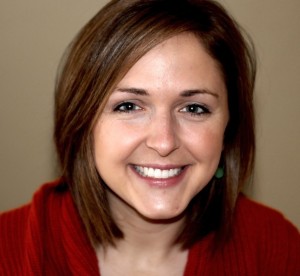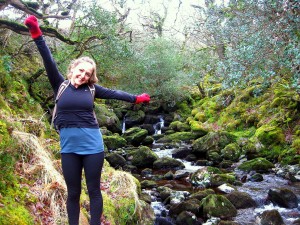The AP-Google Journalism and Technology Scholarship Program fosters new journalism skills in undergraduate and graduate students developing projects at the intersection of journalism and technology. Emily Eggleston is one of six inaugural Scholars.

Hometown: Marshalltown, Iowa
Current location: Madison, Wis.
Current gig Graduate student pursuing Master’s degrees in journalism and geography.
Six-word memoir: Interested, in everything. Too curious? Impossible.
Quick and dirty resume: I grew up in Iowa and earned a bachelor’s degree in agronomy and environmental studies from Iowa State University. The issues that spoke to me most in that learning experience were ones of food security and sustainable food production. I moved to Madison on a whim and found it to be my favorite city in the Midwest. Currently, I am finishing my thesis for an M.S. in geography and excited to begin my second year of a professional-track M.A. in journalism in the fall. This summer I will be an intern on the investigative team at the Milwaukee Journal Sentinel.
Favorite fictional character: “Anne of Green Gables.” I read and loved the entire series when I was in elementary school and cherished the dream of visiting Prince Edward Island until 2009, when I actually made the trip.
Why did you choose to get involved with online media?
It has huge potential for enhancing storytelling and, as a journalism student, I want to be on the cutting edge of where the industry is headed. I’m very interested in data journalism and am continually impressed by the data visualizations released by news organizations and think the interactive ones are often the best. That readers can manipulate complex data sets relevant to stories and issues that matter to them is simply awesome.
What happens during your average day?
Since I am splitting my time between geography and journalism, my average day may seem a bit bipolar. I cover food news in Madison for a local news website and am taking a long-form journalism class so I interview sources, write, and blog about topics that interest me as a journalist. I also spend many hours a week writing my geography thesis about Japanese American internment camp gardens. I visited a historic camp location two summers ago and sampled the soil in order to perform soil chemistry analysis. My thesis discusses the impact internees had on the landscape’s chemistry and the significance transforming their prison landscape with gardens had for them.
You don’t see too many students double majoring in geography and journalism. How did that happen?
I enjoy writing and have always been pushed by my hunger to make a difference. On top of that, I have a quirky but strong interest in soil. Those three things have led me down some interesting paths. Whether doing an agricultural service learning project in Uganda, studying the gardens in a World War II Japanese American internment camp, or writing about food stamp usage in farmers markets, I’ve found ways to pursue my interests and I even feel my experiences build on one another to form my unique and always evolving perception of the world.

What drove you to start the first data-driven journalism group at your university?
Data journalism has such incredible potential. Cities and organizations are collecting more data than ever before and when journalists can use that data to find patterns or illustrate a story, it is a powerful reporting tool. As I followed publications like The New York Times’ and The Guardian’s evolving and impressive use of data in their stories, I realized that was the type of skill I wanted to learn in my journalism Master’s program. As I spoke about my interests to various people in my journalism school, I realized that many of us, whether faculty, staff, or student, had aligned interests in learning the skills that data-based storytelling requires. So I sent out an email asking people to come to a meeting and talk about how we could learn those skills together, and lots of people showed up. It’s been a fun group for me to be a part of and I’ve learned a lot from everyone who participates.
What kind of stories are you looking forward to uncovering next year for the department-run Madison Commons, the hyperlocal news website?
This is a bit of a trick question … because if I knew which stories were out there I would already be writing them. I expect to use many types of data, records from city’s departments, data on social services like the Supplemental Nutrition Assistance Program (SNAP), public health data, and other quantitative records that depict something interesting about the way people live in Madison and issues that are important here.
If you had a million dollars dedicated to improving media, you would …
I am somewhat new to the field of journalism and since joining the fray I’ve heard a lot about the unsustainable business models with which news organizations are struggling. I would use a million dollars to coordinate a summit about which business models are and aren’t working and collect innovative ideas about using online publishing to the advantage of information producers. Then I would help fund pilot projects for existing news organizations to alter their approach to funding the reporting they do that is so crucial to high-functioning communities and states.
